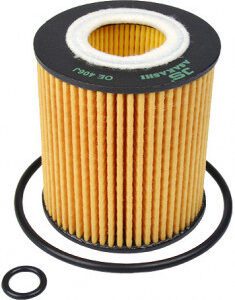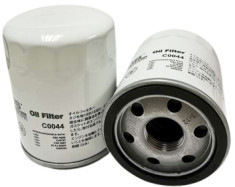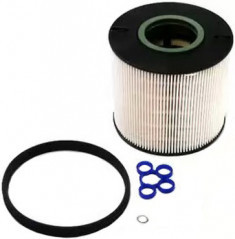-25%
Get Fuel Filter Volkswagen Toureg Prize in Kenya
A fuel filter is an essential component in an internal combustion engine’s fuel system, designed to remove contaminants and impurities from the fuel before it reaches the engine. This ensures the smooth operation, efficiency, and longevity of the engine. Here’s a deep dive into the definition, function, types, and importance of fuel filters:
Definition
A fuel filter is a device located in the fuel line that screens out dirt, rust, particles, and other contaminants from the fuel. It is typically composed of a filter element made of paper, synthetic fiber, or a mesh material housed within a metal or plastic casing.
Benefits;
1. Protecting the Engine
- Contaminant Removal: The primary function of a fuel filter is to trap and remove contaminants such as dirt, rust, debris, and other particulates from the fuel. Clean fuel is essential for the engine to function efficiently and to prevent wear and tear on engine components.
- Prevention of Engine Damage: By filtering out harmful particles, the fuel filter prevents them from entering the engine’s combustion chambers and fuel injectors, reducing the risk of damage to these critical parts.
2. Improving Fuel Efficiency
- Optimized Combustion: Clean fuel allows for more efficient combustion, which improves overall fuel efficiency. Contaminants in the fuel can lead to incomplete combustion, resulting in higher fuel consumption.
- Consistent Performance: A clean fuel filter ensures a consistent flow of fuel to the engine, which helps maintain optimal engine performance and fuel economy.
3. Extending Engine Life
- Reduced Wear and Tear: By preventing contaminants from reaching the engine, the fuel filter reduces wear on engine components such as the fuel injectors, fuel pump, and combustion chambers, thereby extending the life of the engine.
- Preventing Clogs: Fuel filters prevent the buildup of contaminants that could clog fuel injectors and other parts of the fuel system, ensuring smooth engine operation and longevity.
4. Maintaining Fuel System Health
- Fuel Pump Protection: The fuel filter protects the fuel pump by preventing debris from entering and damaging it. A clogged fuel filter can cause the fuel pump to work harder, leading to premature failure.
- Cleaner Fuel Lines: Regularly replacing the fuel filter helps maintain clean fuel lines, reducing the risk of clogs and maintaining a steady flow of fuel.
5. Enhancing Engine Performance
- Consistent Fuel Delivery: A clean fuel filter ensures that fuel is delivered consistently and at the correct pressure to the engine, which is crucial for maintaining smooth and efficient engine performance.
- Preventing Engine Hesitation and Stalling: A clogged fuel filter can cause engine hesitation, misfires, or stalling. Keeping the fuel filter clean helps prevent these issues, leading to a smoother driving experience.
6. Reducing Emissions
- Cleaner Combustion: Clean fuel leads to more efficient combustion, which helps reduce the production of harmful emissions. This is particularly important for meeting environmental regulations and reducing the vehicle’s carbon footprint.
- Improved Exhaust System Health: By ensuring efficient combustion, a clean fuel filter helps reduce the buildup of carbon deposits in the exhaust system, contributing to its overall health and longevity.
7. Cost Savings
- Lower Maintenance Costs: Regularly replacing the fuel filter can prevent costly repairs associated with clogged fuel injectors, damaged fuel pumps, and other fuel system components.
- Avoiding Breakdowns: By maintaining a clean fuel filter, you reduce the risk of unexpected engine problems and breakdowns, saving on emergency repair costs and inconvenience.
Signs of a worn out fuel filter;
1. Engine Performance Issues
- Symptom: The engine struggles to maintain power, especially under load, such as during acceleration or uphill driving.
- Cause: A clogged fuel filter restricts the flow of fuel to the engine, leading to a lean fuel mixture and poor performance.
2. Difficulty Starting the Engine
- Symptom: The engine cranks but has difficulty starting, or it takes longer than usual to start.
- Cause: Insufficient fuel flow due to a blocked fuel filter can make it challenging for the engine to start, especially when cold.
3. Frequent Stalling
- Symptom: The engine stalls frequently, particularly at low speeds or when idling.
- Cause: An inconsistent fuel supply caused by a clogged fuel filter can lead to engine stalling.
4. Engine Misfires or Rough Idling
- Symptom: The engine runs unevenly or misfires, and there is rough idling.
- Cause: A restricted fuel flow disrupts the combustion process, causing the engine to run irregularly.
5. Reduced Fuel Efficiency
- Symptom: Noticeable drop in fuel efficiency, meaning the vehicle requires more fuel to travel the same distance.
- Cause: A clogged fuel filter causes the engine to work harder to draw fuel, leading to increased fuel consumption.
6. Check Engine Light
- Symptom: The check engine light is illuminated on the dashboard.
- Cause: The engine’s electronic control unit (ECU) may detect issues related to fuel pressure or flow, triggering the check engine light. A diagnostic scan can help identify if the fuel filter is the cause.
7. Unusual Noises
- Symptom: The fuel pump makes a whining or buzzing noise.
- Cause: A clogged fuel filter forces the fuel pump to work harder, leading to unusual noises. This strain can eventually damage the fuel pump.
8. Strong Exhaust Smell
- Symptom: A strong, unusual smell from the exhaust.
- Cause: Incomplete combustion due to a restricted fuel flow can lead to unburned fuel in the exhaust, creating a strong odor.
9. Black Smoke from the Exhaust
- Symptom: Black smoke is emitted from the exhaust pipe.
- Cause: A clogged fuel filter can cause improper fuel-air mixture, leading to incomplete combustion and black smoke.
Diagnosing a Worn-Out Fuel Filter
To confirm a fuel filter issue, several diagnostic tests and inspections can be performed:
- Fuel Pressure Test: Measures the pressure in the fuel system. Low pressure can indicate a clogged fuel filter.
- Visual Inspection: Checking the fuel filter for obvious signs of clogging or damage.
- Fuel Flow Test: Assessing the flow rate of fuel to the engine to determine if it is within the acceptable range.
Follow us on Facebook for more parts.



